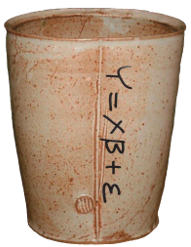Alternative to the odd-even plan: there’s another way out for Delhi’s traffic
In April 2016, the Delhi city government will run again the odd-even-day traffic-reducing scheme it tried out in January 2016. As in January, the project will run again for only two weeks. The aim is to reduce Delhi’s sky-high air pollution. Side benefits are easing Delhi’s traffic jams and reducing fossil fuel use.
Delhi is still looking for alternatives of this scheme. The scheme’s problem is that it creates too many disruptions in people’s day-to-day lives, and reduce productivity.
Under the scheme, throughout Delhi, on Monday thorough Saturdays, between 8am and 8pm, cars with odd-number license plates will be legal to drive only on odd-numbered calendar days. Cars with even-numbered plates will be legal only on even-numbered days. Sundays and other times are unrestricted.
In effect, the odd-even scheme issues each car 13 right-to-drive certificates per month. This is the number of remaining odd and even days, each, in a month, after removing four Sundays. The certificates are linked to the car’s license plate. Consequently, a particular car cannot be driven on two consecutive days. If a car is not driven on an allowed day, that day’s certificate cannot be used in the future. And, there is no legal way to drive a particular car more than 13 restricted days in a month.
This lack of choice and flexibility imposes high levels of hardship on people, government agencies, and business.
To mitigate these problems, Delhi will exempt (apart from emergency vehicles) many groups. These include leading political figures, judges, paramilitary forces, and women without an adult male in the car. This reduces the scheme’s impact.
The scheme’s impact is further reduced by the rumored use of easily available fake license plates to beat the odd-even rule. Another way to beat the rule is to acquire an additional car with a complementary license plate number.
A better scheme can be formulated by breaking the link between a certificate and the license plate, and adding a suitable road-pricing scheme.
Under the proposed scheme, the government would issue each Delhi car 13 one-day transferable certificates per month. Drivers would choose when to use them – this month or in future months. Ten certificates would be free, with an option to buy three more from the government at a low price.
Anyone who wanted to drive a car more than 13 days would have to buy certificates from other drivers. The money from the sale be an incentive for those who can reduce their driving days to do so. The purchase of certificates would a simple, legal way to interested drivers to drive more than 13 days a month.
The government would facilitate these sales by creating an electronic marketplace. The price of additional certificates would be determined by demand and supply, not by the government.
Unlike the odd-even scheme, the proposed scheme has no in-built incentive to buy an additional car just to drive more than 13 days. The reason is that buying additional certificates would be cheaper than buying another car.
Instead of being exempt, most currently favored groups would get 15 free and 5 optional low-cost per certificates month. Like everyone else, they would buy additional certificates in the marketplace if they wanted to drive on more days.
Under the proposed scheme, some cars would be issued non-transferable certificates, which will allow them to drive in Delhi when they want to. But, if they did not need to drive their cars, they would not be able to sell their certificates, as this would increase the number of cars on the road.
Specifically, all newly registered cars would get only non-transferable certificates. People could not buy a car just to transfer its certificates. Existing clunkers, say more than seven years old, would also get non-transferable certificates. There would be no incentive to keep them going just to transfer their certificates. For similar reasons, drivers from outside Delhi would also get only non-transferable certificates.
The funds from the sale of optional certificates would cover some of the government’s costs. A small transfer fee would cover some of the marketplace’s operating costs.
This scheme will work better with improved public transportation, which makes it easier for drivers to give up their cars. Fortunately, Delhi has already begun to improve its bus system.
Without the visual link to the license plate, how will this scheme verify whether a car is legal on particular day? An electronic system is needed for this. At present, no city anywhere has a system that covers all of a city. It is clear that Delhi needs a new system.
Hence, Delhi’s government, and other interested groups, should incentivize capable people worldwide to develop a new system that would work in Delhi and other cities. If this system can work on mobile phones, the operational costs will be low.
Once a new, workable electronic verification system is available, Delhi, and other similar cities, will be able to reduce air pollution, traffic congestion, and fossil fuel use smoothly and effectively.
